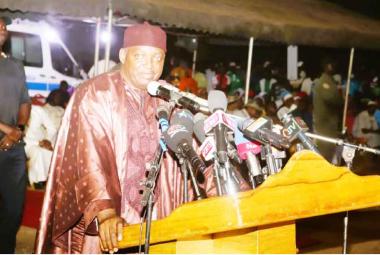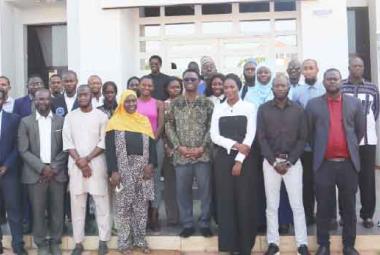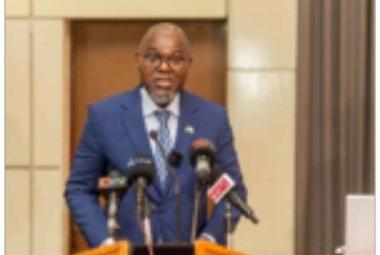By Lamin B. Darboe
At the recently concluded National Dialogue of NAMs, Religious and Traditional Leader’s Networks on Gender-based Violence, held at Bakadaji Hotel, the Director of National Population commission Secretariat (NPCS) Madam Marima Fanneh recognised the potential of community leaders, including traditional and religious leaders, in the fight against Gender Based Violence (GBV). “Your influence within communities, your moral authority, and your ability to shape cultural norms make you invaluable allies in this fight. We strongly urge you to consistently emphasize the importance of protecting the rights of adolescent girls and young women. By actively speaking out against gender-based violence, FGM, and child marriage, you can lead a cultural shift towards rejecting these harmful practices,” she remarked.
The dialogue served as a platform for meaningful discourse. The Director described it as an opportunity to exchange insights and chart a collective path towards a lasting solution to FGM and child marriage.
Also recognizing the influence of lawmakers, the NPCS boss said they hold power to enact and enforce legislation that safeguards the rights of women and girls. “By championing awareness campaigns on gender-based violence and promoting positive attitudes towards gender equality, you can set a powerful example for communities to follow,” she observed.
Madam Fanneh went on to reference some recent research on the state of GBV in the country; such as the data from the 2019/2020 Demographic and Health Survey, which reveals a concerning prevalence of these harmful practices. She reported that 75.79% of women aged 15-49 have undergone FGM, and 34.8% of girls are married before the age of 18. These statistics, she noted illustrate the profound impact on the lives of young women and girls.
“These practices, deeply rooted in cultural, social, and economic factors, disproportionately affect women and girls worldwide, including The Gambia. FGM can inflict lasting health problems, hindering a young woman’s ability to work and participate fully in society. Similarly, child marriage often forces girls to abandon their education, limiting their opportunities and perpetuating cycles of poverty,” the Director remarked.
Madam Fanneh noted that addressing gender-based violence necessitates a multifaceted approach that examines cultural and religious perspectives. This, she said, requires the collective effort of all stakeholders and every citizen.
She pointed out the need to harness the full potential of the youth bulge. However, this, she observed, cannot be achieved by leaving over half of this population – young women – behind. She lamented that FGM and child marriage act as significant barriers to their potential, hindering not only their own advancement but also the nation’s social and economic progress.
Also speaking on the occasion was Fanta Bai Secka, Deputy Director at the Ministry of Health. She called for the promotion of positive cultural practices while discarding the negative ones. She suggested that the educational bit of the female circumcision rites be maintained while the act of cutting itself be abolished.
Madam Secka warned that FGM tends to affect all women in our traditional communities regardless of whether they have undergone FGM or not – that those who are not cut are usually discriminated against and referred with degrading names.
The dialogue was characterized by presentations and open discussions about the different perspectives on FGM and early marriage.







